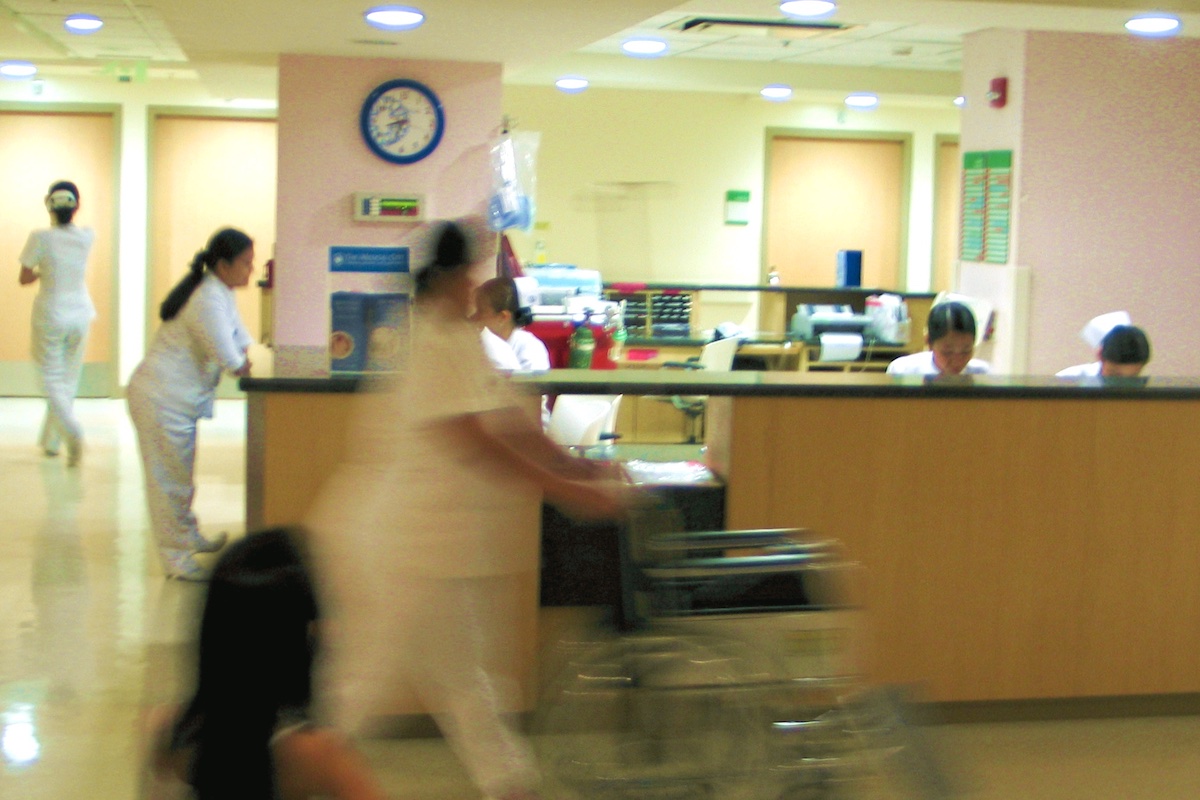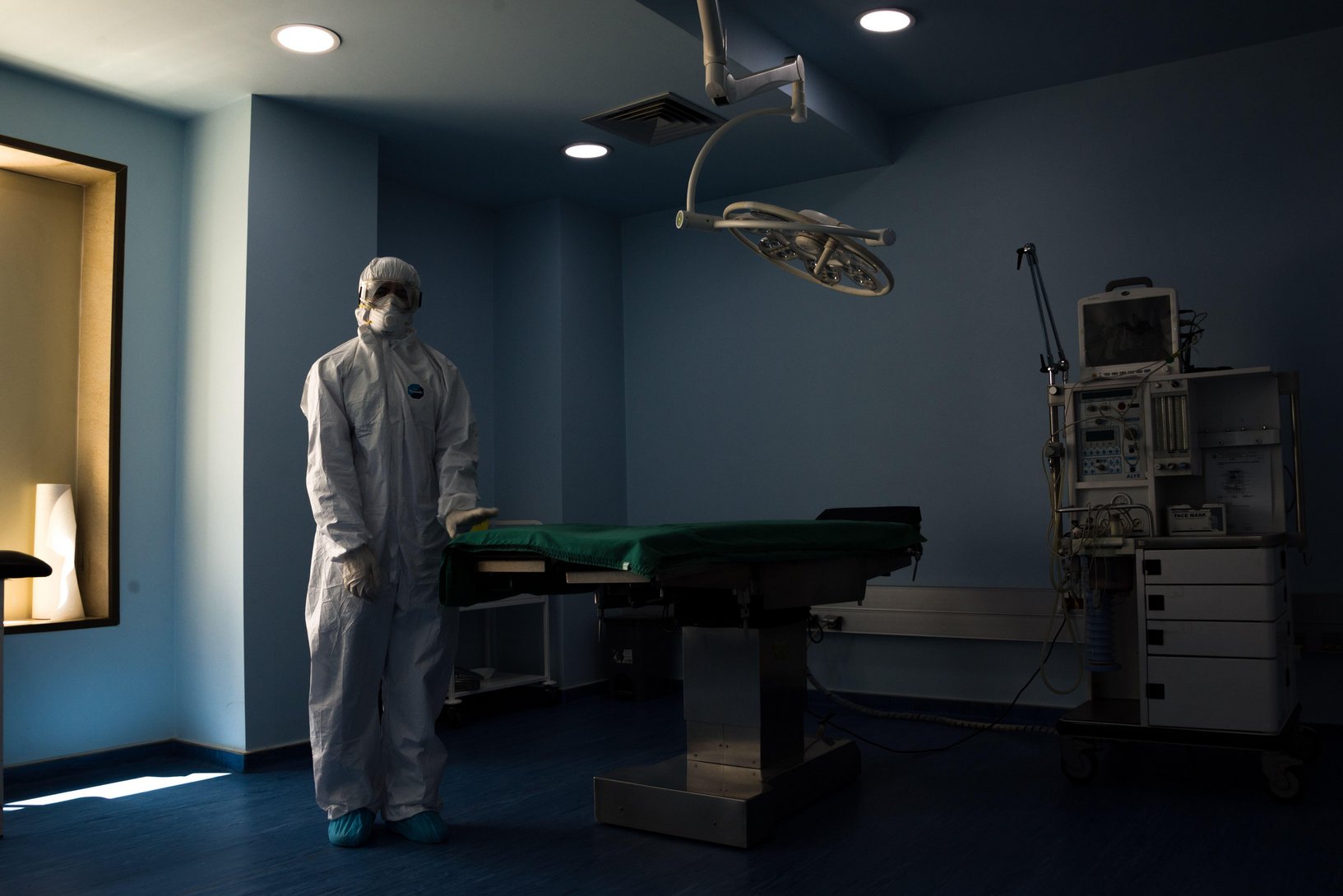COVID-19
I’m a Nurse. But No, I Don’t Want to Be a Hero
In some cases, the efforts of nurses and doctors have been called heroic, especially in hot spots such as Italy and New York City.

If you’re a nurse in British Columbia, as I am, your employee identification probably sports a small golden triangle imposed over a black background. It’s the same symbol often seen on road signs marking disaster response routes. When presented, such identification can allow emergency personnel to traverse controlled routes during an official state of emergency, such as the current COVID-19 pandemic.
Before 2020, I never thought much about this symbol, or what it represented. I felt cocooned in Canada, a safe country with a relatively advanced public health-care system. But now I feel like the small-town neighbour being interviewed by a reporter in the wake of a terrible crime: This is a safe place. Nothing like this is supposed to happen.
There have been more than 300 COVID-19 deaths in Canada. That is fewer, per capita, than in the United States. But our prime minister has warned us to prepare for “worst outcomes.” Nurses in one Canadian province already have refused to test patients for the virus because their employer had rationed personal protective equipment (PPE). A Canadian physician published an op-ed telling hospital administrators to prepare for front line workers to die in the line of duty. Nurses and physicians have expressed distrust of public health officials, and discussed abandoning their post if the Canadian government cannot prevent an impending PPE shortage. The news from other countries is hardly reassuring: Health-care workers in the UK have donned trash bags in the absence of clean gowns. And in the United States, things got so grim at one point that they’ve rented refrigerated trucks to use as makeshift morgues.
In some cases, the efforts of nurses and doctors have been called heroic, especially in hot spots such as Italy and New York City. In March, my own neighbourhood adopted an evening ritual of cheering for front-line health workers fighting the pandemic. Police and ambulance vehicles form a flashing procession past my city’s hospital.

I’m definitely not one of the heroes. The pandemic struck when I was on maternity leave. I’m due back imminently, but as a hospital nurse educator, not as a frontline caregiver. Plus, lacking daycare (which was shuttered), I’ve elected to delay my return to work by several weeks.
If I’m being honest, the daycare issue served a convenient cover for my own fears. I’ve dealt with bouts of hypochondriasis in the past, and now feel the familiar worries—intrusive thoughts of doom roiling to the surface. I keep asking myself: Is this a pathological fear or an appropriate response to a real health risk? But it’s uncharted territory. I’ve never lived through a pandemic.
I don’t want to bring an infection home to my children, aged one and three, or become so sick that I can’t care for them. If I’m quarantined, I won’t be able to see them for two weeks. I worry about my husband, too. And there are more worries, ones that I don’t even want to form with words. I don’t feel brave in any sense, let alone heroic.
But at least I know I’m not alone. On a recent Quillette podcast episode, an ICU director noted that while it is sometimes easy to recruit doctors to treat victims of earthquakes and other natural disasters, similar efforts to recruit doctors for COVID-19 duty have been much less successful. Once an earthquake is over, it’s over. But when there’s a pandemic, everyone’s at risk.
I’ve seen at least one doctor tweet that she’d prefer to stay home. And I sometimes visit online forums where nurses and doctors share similar thoughts. Responses are not universally supportive. There’s a narrative that says that doctors and nurses must “answer the call.” That’s why I’m uneasy about the nightly cheering sessions. Some of us don’t feel like trying to become heroes. Yes, I have a few colleagues who would volunteer to travel to Africa to treat an Ebola outbreak. But they’re in the minority.
I’m going to say something unpopular
— Rebecca Lawrence (@Rebecca99LT) March 28, 2020
I wish I wasn’t a doctor
I wish I wasn’t terrified at what I may be asked to do
I wish I could self isolate
Sorry
Some are predicting that COVID-19 will come in waves, like other pandemics, and that a second more deadly surge may come in the fall. What happens if there’s a critical shortage of masks, or beds, or workers themselves? Will there be an expectation that the “heroes” we are celebrating (and their families) must take on an ever-increasing level of risk? If we can’t adequately ramp up capacity, and work conditions become intolerably dangerous, will the public turn on health workers who abandon their posts?
The health-care-workers-as-heroes narrative is alluring. As with the 9/11 first responders, it helps the public cope with their fears and anxieties. But it has its dark side.
As for me, it looks like I will be back at work before the pandemic is over. Even though I don’t work in a high-risk role, I expect a workplace that’s very different from the one I left a year ago. And I will do my best to put on my own brave face until we all can settle in to a new normal.
What that normal will look like, I’m not sure. But one thing feels certain: Those small golden triangles on our ID badges will never again strike me as any mere abstract logo. Instead, they symbolize a deadly occupational hazard that health-care workers will face for many more months to come.
Amy Eileen Hamm lives in New Westminster, BC. Follow her on Twitter at @preta_6.
Featured image: Hospital nursing station photographed by David Quitoriano.






